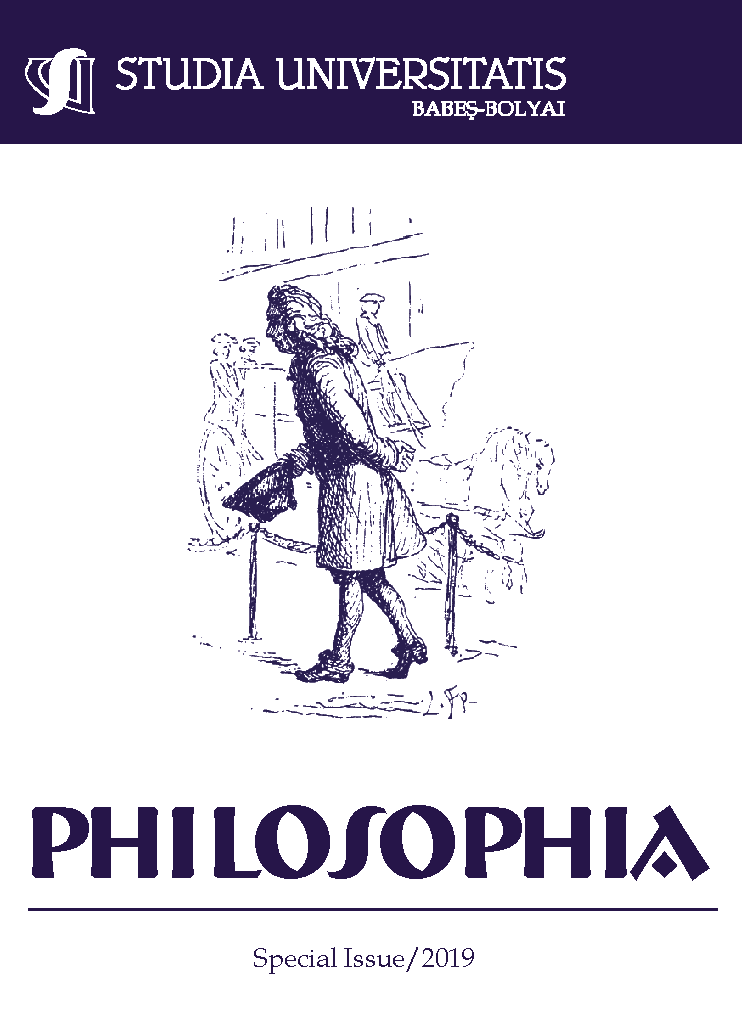LA CONSCIENCE DU TEMPS CHEZ SPINOZA ET BOUTANG. L’OBJECTION DE BOUTANG CONTRE SPINOZA DANS LE DENOUEMENT DE L’ONTOLOGIE DU SECRET
DOI:
https://doi.org/10.24193/subbphil.2019.spiss.03Keywords:
Spinoza, Boutang, time, eternity, oblique, desireAbstract
The Conscience of Time in Spinoza and Boutang. Boutang’s Objection to Spinoza in the Resolution of the Ontologie du secret. This article aims to compare the relation to time and eternity in Spinoza and Boutang. Why such an attempt? Boutang, in footnote nr. 442 of the last chapter of his book, Ontologie du secret, objects to Spinoza, who rejects all ontological content of the future and therefore condemns substance to be an eternal past. On the contrary, Boutang seeks an ontological participation via a subjective imitation of the Trinitarian person, who would act in the modal reality. This requires a change in the consciousness of time, by understanding Time not as a thing, but as something related to Creation itself, in order to finally confer an ontological content to the future as a project. As a result, both conceptions are in opposition to the status of the substance and God to find the effective participation (called the third kind of knowledge in Spinoza). Nevertheless, they can get closer regarding the search of a subject’s metamorphosis in the very duration via a specific participation to eternity which Boutang calls other time, and more metaphorically oblique corridor. Consequently, this consciousness of an other time fills an important gap that remains in the proposition 23, V of the Ethic, which divides consciousness between understanding and imagination at the expense of conscience itself.
References
Boutang, P., Le temps. Essai sur l’origine, Paris, Hatier, 1993.
Boutang, P., Apocalypse du désir, Editions du Cerf, 2009.
Boutang, P., Ontologie du secret, 2ème édition « Quadrige », 2009.
Boutang, P., La politique considérée comme souci, Paris, Les Provinciales, 2014.
Deleuze, G., Spinoza. Philosophie pratique, Minuit, Paris, 1981.
Dragomir, A., Cahiers du temps, Vrin, 2010
Marcel, G., Homo viator, association Gabriel Marcel, 1998.
Mercier P., « Sur le sentier de la veille avec Gabriel Marcel », Studia UBB Theol. Cath., LXII, 1-2, 2017, 29.
Platon, Œuvres complètes, Parménide, Paris, Garnier Flammarion, 2008.
Rosset, C., Logique du pire, Quadrige, 2013.
Saint-Augustin, Confessions, in Bibliothèque de la Pléiade, tome I, Paris, Gallimard, 1998.
Spinoza, B., Oeuvres I, trad. Charles Appuhn, Garnier Frères, 1964.
Spinoza, B., Ethique, trad. Charles Appuhn, Garnier Frères, Paris, 1965.
Spinoza, B., Traité théologico-politique, Garnier Frères, 1965.
Tran-Duc-Thao, Phénoménologie et matérialisme, Ed. Minh Tan, Paris, 1951.
« Un autre ordre du temps. Pour une intensité variable du maintenant », Revue de Métaphysique et de Morale, Temps physique et temps métaphysique, 2011/4 (n° 72).
Downloads
Published
How to Cite
Issue
Section
License
Copyright (c) 2019 Studia Universitatis Babeș-Bolyai Philosophia

This work is licensed under a Creative Commons Attribution-NonCommercial-NoDerivatives 4.0 International License.





